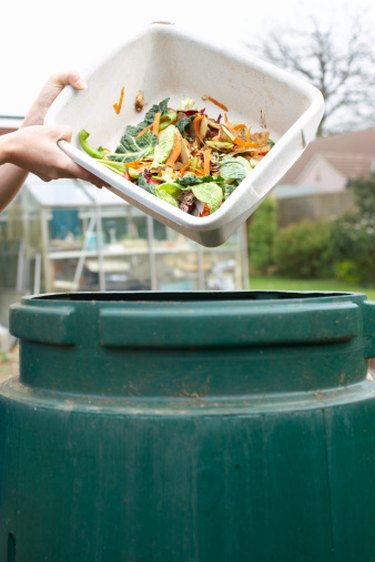
Compost piles break down organic material into a natural fertilizer known as humus. The nutrients in yard and kitchen waste can be reclaimed and applied to your garden once the material is broken down in a compost pile. The majority of the work is done by bacteria that feed on the carbon and nitrogen in the plant matter. They secrete natural enzymes that break down the more complex components of the compost into something that is digestible by the microbes. Worms and fungi also use enzymes to bio-degrade your compost pile.
Enzymes
Video of the Day
Compost enzymes come naturally from bacteria, fungi and in the digestive tract of worms that devour the plant matter. The enzymes break down the material and allow the various organisms to feast on the left-over bounty of your table and yard. Without the enzymes, there would be no breakdown of the material. If there are few bacteria at the beginning of the compost pile, it may take longer for them to naturally produce what they need.
Video of the Day
Natural Starters
The most readily available natural starter for a compost heap is a shovel-full of your last compost heap. It has all the local, natural organisms necessary to produce the enzymes needed to start a new pile. Other natural starters help to increase the nitrogen content of a compost pile, which if it's too low will inhibit the growth of the bacteria in the pile. Blood meal, bone meal, fish meal, used coffee grounds and animal manure all help to boost the nitrogen content and encourage the growth of bacteria that will produce the enzymes for digesting the compost.
Artificial Starters
Garden supply stores sell numerous compost starters that essentially have all the bacteria and enzymes bundled together with a hit of nitrogen to get them going. The bacteria in a commercial starter are usually cultivated in a lab and then put in a state of suspension for packaging and sale. They will reactivate when exposed to moisture, water and plant matter. Enzyme starters are available at most home and garden stores.